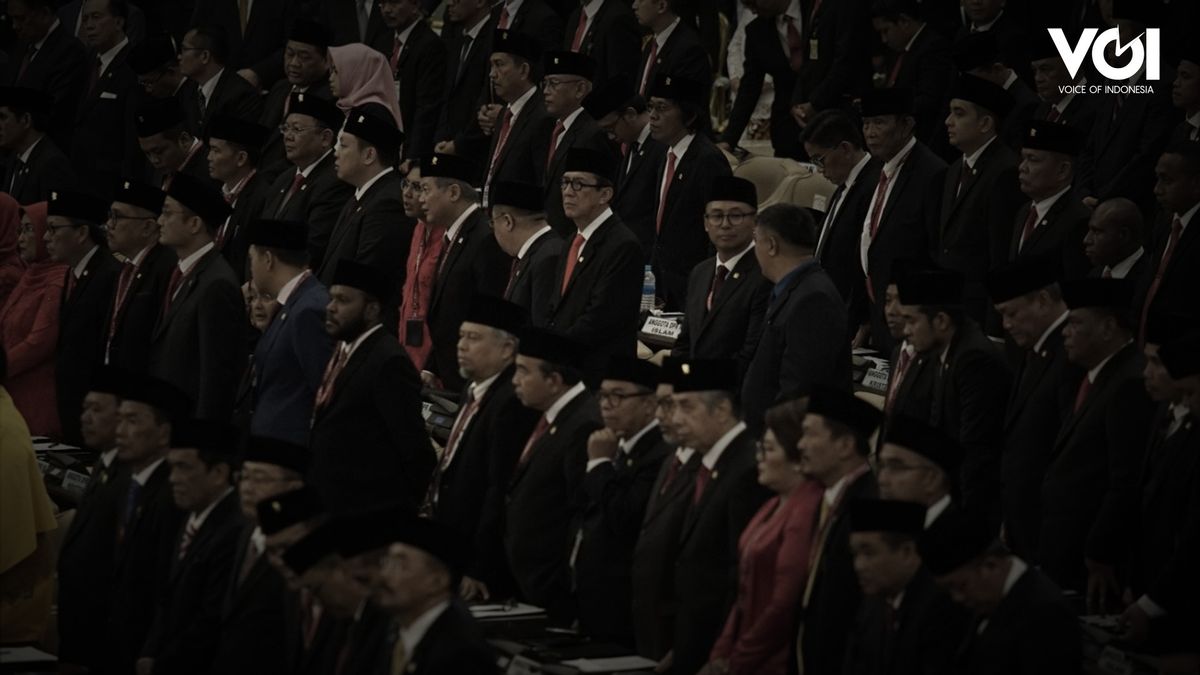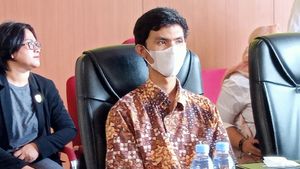There are many reasons for rejecting the BDSM ban in the Family Resilience Bill. We've talked a lot about that exploratory sexual activity. In fact, the article "Those Who Preserve a Long History of BDSM" has explained the long history of BDSM which has long been a part of human sexual activity. The final article in VOI's signature Series, "In BDSM Dimensions." The conclusion is clear. The Family Resilience Bill was born out of poor sex education in this country. Classic.
The Family Resilience Bill (RUU) is reaping a polemic. The regulation plans to regulate BDSM sexual activity. However, it is a problem. The People's Representative Council (DPR) is considered to have failed in reasoning that BDSM categorizes BDSM as a sexual deviation, equivalent to homosexuals, lesbians and incest.
The prohibition on sexual activities of sadism and masochism is regulated through the Family Resilience Bill Article 85 Paragraph 1. In this article, sadism, masochism is equated with homosexuals (male-male relations), lesbian (female-female relations) and incest in the category of sexual deviance. The article reads:
What is meant by "sexual deviation" is sexual urge and satisfaction which is shown to be unusual or in unreasonable ways, including among others:
a. Sadism is a person's way of obtaining sexual satisfaction by punishing or hurting the opposite sex.
b. Masochism, as opposed to sadism, is a person's way of obtaining sexual gratification through punishment or torture from the opposite sex.
c. Homosex (male to male) and lesbian (female to female) are social identity issues where someone loves or likes other people of the same gender.
d. Incest is a sexual relationship that occurs between people who have blood relations in a straight line down, upward, or sideways, by the same age, sexual relations, and relationships that are prohibited by their religion or other applicable regulations.

Researcher of the Community Care Forum for Parliament (Formappi) Lucius Karus assessed that the scientific basis for drafting the Bill on Family Resilience is weak. He even views that the DPR does not understand the difference in sexual deviance. "I think it is necessary to fully understand BDSM and LGBTQ characters before trying to manage those things," Lucius told VOI some time ago.
Lucius also questioned the Family Resilience Bill which penetrates into the realm of privacy, including BDSM sexual activity. "Is that (BDSM) properly called an offense or perversion? Or is it a free choice for those who are sexually deviant?"
Poor sexual education
In Indonesia, the discourse on sexual education is still taboo to be discussed. In fact, according to several analyzes, sexual education in the realm of formal education is far from comprehensive. Some things that are included in the curriculum are still limited to understanding not to have sex in order to avoid sexually transmitted diseases (STDs).
Quoting the study of The Conversation, our education hardly touches material that focuses on sexuality, relationship approval or touch with other people, which is commonly called consent, and other issues that are sensitive to gender issues.
This was agreed by the Head of Law and Gender Society (LGS), Faculty of Law, Gadjah Mada University, Sri Wiyanti. According to him, the struggle to realize a formal curriculum for sex education is far from burning.
"At the policy-making level, they are still not brave because there are still discourses from certain groups that only see sex education as a moral issue and not as a necessity," Sri told The Conversation.
In line with that, Ni Luh Putu Maitra Agastya, senior researcher at the Center for Study and Advocacy for the Protection and Quality of Life of Children (PUSKAPA), emphasized the importance of a human rights-based approach to sexuality because it places consent and ethics in dealing with others as the foundation of the curriculum.
"What should be the focus is how to empower and prepare children and young people to become responsible adults, who can make decisions independently, not to 'sterilize' them from risky behavior," he explained.
How is the ideal?
Completely, sexologist Haekal Anshari agreed that the government should have started including sexual education in the school curriculum. According to him, apart from school, an important element that is obliged to carry out sexual education is family. According to him, from an early age children should have started education.
"And schools must educate and prepare educators ... At least when the child is two or three years old," Haekal told VOI.
Lack of sex education from official educational institutions eventually encourages many children to find out for themselves things about sex. This is certainly risky. Without assistance, children are potentially exposed to misleading knowledge about sex.
"The point is to educate and prepare the next generation to be responsible for their reproductive health and sexual function so as not to harm themselves or other parties," he said.
Follow the Writing Series of this issue: In BDSM Dimensions
The English, Chinese, Japanese, Arabic, and French versions are automatically generated by the AI. So there may still be inaccuracies in translating, please always see Indonesian as our main language. (system supported by DigitalSiber.id)









